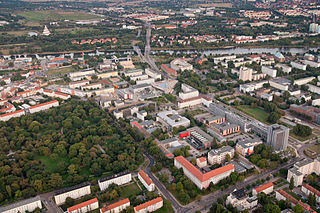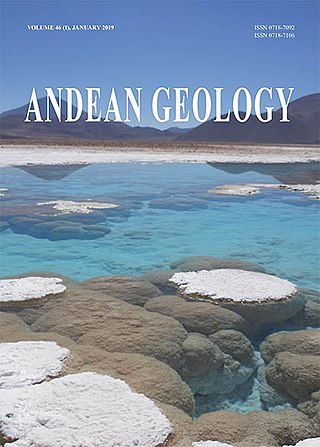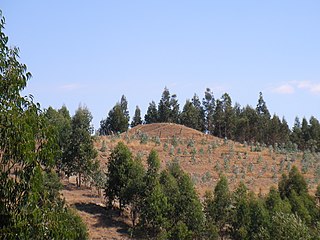Scopus is Elsevier's abstract and citation database launched in 2004. Scopus covers nearly 36,377 titles from approximately 11,678 publishers, of which 34,346 are peer-reviewed journals in top-level subject fields: life sciences, social sciences, physical sciences and health sciences. It covers three types of sources: book series, journals, and trade journals. All journals covered in the Scopus database are reviewed for sufficiently high quality each year according to four types of numerical quality measure for each title; those are h-Index, CiteScore, SJR and SNIP. Searches in Scopus also incorporate searches of patent database Lexis-Nexis, albeit with a limited functionality.

The Otto-von-Guericke University Magdeburg was founded in 1993, making it one of the youngest universities in Germany. The university is located in Magdeburg, the Capital city of Saxony-Anhalt and has about 13,000 students in nine faculties. According to the Scopus database there are around 32,900 papers published in international journals from the University.

Austral University of Chile is a Chilean research university based primarily in Valdivia, with a satellite campus in Puerto Montt. Founded on September 7, 1954, it is one of the eight original Chilean Traditional Universities. It operates as a nonprofit self-owned corporation under private law, and receives significant state-funding.

University of Magallanes (UMAG) is a university in the southern Chilean city of Punta Arenas. It is a public state university and it is part of the Chilean Traditional Universities. The University of Magallanes was established in 1981 during the neoliberal reforms of the Chile's military regime as the successor of Universidad Técnica del Estado's Punta Arenas section. Universidad Técnica del Estado had established the Punta Arenas section in 1961. The University of Magallanes have campuses in Punta Arenas and Puerto Natales as well as a university centre in Puerto Williams. University of Magallanes publishes the humanities and social sciences journal Magallania twice a year.
Hernán Neira is a Chilean writer, philosopher and university professor.
Austral means 'southern', often in reference to the Southern Hemisphere.

Tom Dillehay is an American anthropologist who is the Rebecca Webb Wilson University Distinguished Professor of Anthropology, Religion, and Culture and Professor of Anthropology at Vanderbilt University. In addition to Vanderbilt, Dillehay has taught at the Universidad Austral de Chile and the University of Kentucky. Since 1977, Dillehay has been involved in the excavations at Monte Verde in Chile, where an early human settlement was found in 1975. Dillehay claims that the remains are about 14,800 years old according to the calibrated dates of carbon 14. The data suggest that people might have been in South America before 15,000 years ago and challenging the Clovis theory of the first human arrival in the Americas.

Astronomy & Astrophysics is a monthly peer-reviewed scientific journal covering theoretical, observational, and instrumental astronomy and astrophysics. The journal is run by a board of directors representing 27 sponsoring countries plus a representative of the European Southern Observatory. The journal is published by EDP Sciences and the editor-in-chief is Thierry Forveille.
Claudio Donoso Zegers was a Chilean forester, teacher and professor emeritus at the Austral University of Chile in Valdivia. Donoso was among the first to define the different forest types of Chile when he released the book Tipos forestales de los bosques nativos de Chile in cooperation with CONAF in 1981. This typology became later official by its use in Chilean law. From 1980 to 1981 he was co-editor of Bosque, a forestry scientific journal published by the Austral University of Chile. He retired in 2000 becoming a professor emeritus.
Bosque is a scientific journal published by the Forestry Faculty of the Southern University of Chile. It publishes articles on a wide range of forestry-related topics, primarily on issues that are relevant to Chile, Latin America and the Southern Hemisphere. The published articles include peer-reviewed scientific research papers, items of current interest and opinion pieces. Bosque's first issue was published in 1975 and the journal was issued yearly until 1985. From 1985 to 2003 it was issued twice a year and from 2003 on three times a year. The topics covered in Bosque are management and production of forestry resources, wood science and technology, silviculture, forest ecology, natural resources conservation, and rural development associated with forest ecosystems. The journal publishes research articles, notes and opinions, both in Spanish and English. Bosque was included in the Science Citation Index Expanded in 2009. The journal is also indexed in The Zoological Record.

Andean Geology is a peer-reviewed scientific journal published three times per year by the National Geology and Mining Service, Chile's geology and mining agency. The journal covers the field of geology and related earth sciences, primarily on issues that are relevant to South America, Central America, and Antarctica with a particular focus on the Andes. The journal was established in 1974 and articles are published in English and Spanish. The editor-in-chief is Waldo Vivallo.

Functional Ecology is a monthly peer-reviewed scientific journal covering physiological, behavioural, and evolutionary ecology, as well as ecosystems and community ecology, emphasizing an integrative approach.

Guido Mutis Carrasco was an English literature professor at the Valdivia campus of the Austral University of Chile and director of the Valdivia International Film Festival. During his life he made important contributions to national cinema studies and Chilean literature.
Chungara Revista de Antropología Chilena is a peer-reviewed academic journal on anthropology and archaeology with particular, but not exclusive, focus on the Andean region. The journal is published by the Departamento de Antropología and the editor-in-chief is Vivien G. Standen.
Archivos de Medicina Veterinaria is a peer-reviewed scientific journal published by the Faculty of Veterinary Sciences of the Universidad Austral de Chile. It covers research on a wide range of veterinary medicine and animal welfare topics.
Revista Austral de Ciencias Sociales is a biannual peer-reviewed academic journal specialising in social science, including fields such as history and archaeology. It was established in 1997 and is published by the Austral University of Chile. The journal is abstracted and indexed in Scopus, Redalyc, and Latindex.

Surgical Neurology International is a bimonthly peer-reviewed open access medical journal that was established in 2010 and is published by Medknow Publications. It publishes original articles, review articles, case reports, technical notes, and editorials regarding developments in the field of neurosurgery and related clinical and basic neurosciences. The editor-in-chief is James I. Ausman.
Thomas Thorstein Veblen is an American forest ecologist and physical geographer known for his work on the ecology of Nothofagus forests in the Southern Hemisphere and on the ecology of conifer forests in the southern Rocky Mountains of the U.S.A. He is an Arts and Sciences College Professor of Distinction at University of Colorado at Boulder, USA (2006).

The cuel are Mapuche-built tumulus. The best known cuels are near the localities of Purén and Lumaco in Araucanía, south-central Chile. The first significant studies of the cuel were published by Tom Dillehay and José Saavedra in 2003 and 2007. The word cuel is a neologism formed from the mapudungun word kuel, meaning boundary marker according to the 18th century dictionary of Andrés Febrés.

The Osorno Steer is the meat of young male cattle from the vicinity of Osorno, including parts of Los Ríos Region, in southern Chile. The origins of the Osorno Steer as a recognisable product of prestige in the Chilean meat market can be traced to the early 20th century when Osorno attained status as one of Chile's two main cattle farming areas. Later in the 20th century Osorno rose to become the unrivaled cattle farming area of Chile.










